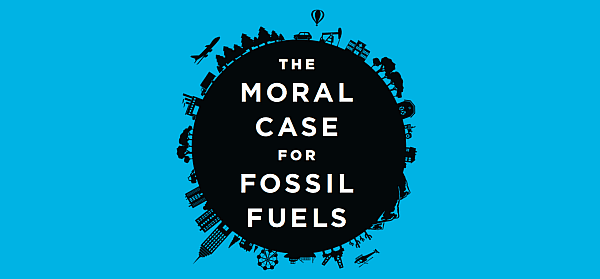The core idea of the Green New Deal, endorsed by virtually every Democratic Presidential candidate, is that the government should rapidly outlaw fossil fuel power and rapidly replace it with renewable power, mostly from solar and wind.
This would be the most radical change in the history of the American economy—and, as many commentators have pointed out, would have disastrous consequences given a) the unreliability of solar and wind and b) the destructiveness of the government taking over any segment of the economy.
So why does the Green New Deal have so much appeal? Because it is a bold plan to address what is widely conceded to be an “existential threat”—the CO2 emissions of fossil fuels, aka “climate change.”
As I discuss in this week’s Power Hour, calling climate change an “existential threat” has become a ubiquitous election talking point:
- Bernie Sanders: “Let’s be abundantly clear: climate change is an existential threat to our country and to the entire planet.”
- Joe Biden: “Climate change is an existential threat to our future—staying in #ParisAgreement is the best way to protect our children & global leadership.”
- Kamala Harris: “First of all, climate change is presenting an existential threat to our nation … and the world.”
- Cory Booker: “So climate change is an existential threat.”
- Jay Inslee: “Climate change is truly an existential threat for everything we hold dear here. And I mean everything.”
An “existential threat” means a threat to existence as we know it (and love it).
It is a crazy exaggeration to call the increase of atmospheric CO2 from .03% to .04%, which correlates with a temperature increase of 1 degree in the last 150 years, an “existential threat.” If it was an existential threat, it would have already led to a massive increase in climate-related deaths, as many of today’s environmental thought-leaders predicted would already happen.
- In 1986, leading ecologist John Holdren predicted that “carbon-dioxide climate-induced famines could kill as many as a billion people before the year 2020.”
- In 1989, the UN predicted “entire nations could be wiped off the face of the Earth by rising sea levels if the global warming trend is not reversed by the year 2000.”
In fact, climate-related deaths have been plummeting as CO2 emissions have been rising—from millions per year in the 1930s to thousands per year today.
The most significant cause of our radically reduced climate danger is industrial development, which takes a naturally dangerous climate and makes it unnaturally safe. And industrial development is driven by cheap, plentiful, reliable energy—which, today, overwhelmingly means fossil fuels.
If there’s any added climate danger caused by fossil fuels’ CO2 emissions, it is clearly more than offset by all the extra energy fossil fuels give us to improve climate safety—and to improve every other area of life.
If we look at the full impact of fossil fuel use, instead of just looking for negatives and exaggerating them, we find that it is not an existential threat, it’s an existential resource.
The root cause of existence as we know it and love it is not a naturally friendly climate, which has never existed, but the unnatural level of human empowerment that we get from fossil fuels.
The Green New Deal, an attempt to ban fossil fuel power and, on top of that, nuclear power, is not fighting an existential threat—it is an existential threat.
Power Hour: The existential threat of the GND, Chevron buys Anadarko, flying car fears, and more
On this week’s episode of Power Hour, Don, Steffen, and I cover six topics:
- The Green New Deal, not climate change, is an existential threat
- We wanted flying cars, instead we got climate catastrophism
- What Chevron’s purchase of Anadarko means for the future of oil and gas
- Elizabeth Warren vows to ban fracking on public lands
- The unethical Michael Mann gets an ethics award
- Pennsylvania’s underhanded push for cap-and-trade




